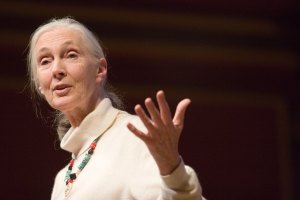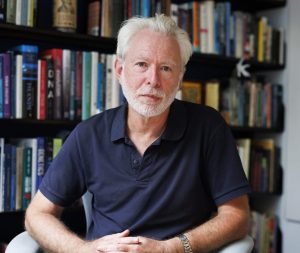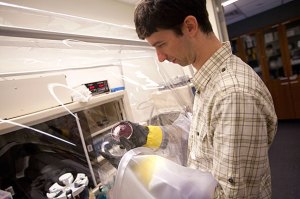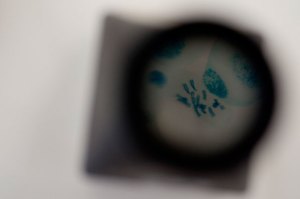Tag: Broad Institute
-
Health
Sequencing Ebola’s secrets
A global team from Harvard University, the Broad Institute, the U.S. Centers for Disease Control, and other institutions sequenced more than 200 additional Ebola samples to capture the fullest picture yet of how the virus is transmitted and changes over a long-term outbreak.
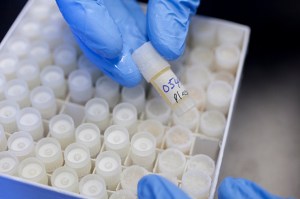
-
Science & Tech
Creating ‘genomic origami’
Researchers have assembled the first high-resolution, 3-D maps of entire folded genomes and found a structural basis for gene regulation, a kind of “genomic origami” that allows the same genome to produce different types of cells.

-
Health
Ebola genomes sequenced
A team of researchers from the Broad Institute, Harvard University, and elsewhere has sequenced and analyzed dozens of Ebola virus genomes in the present outbreak. Their findings could have important implications for rapid field diagnostic tests.
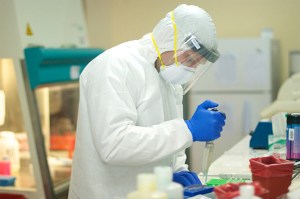
-
Health
Researchers shed new light on schizophrenia
Harvard-affiliated researchers joined an international team to identify more than 100 locations in the human genome associated with the risk of developing schizophrenia in what is the largest genomic study published on any psychiatric disorder to date.
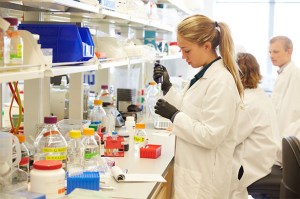
-
Campus & Community
A Q&A forum with the president
Harvard President Drew Faust answered a wide range of student questions in an open meeting hosted Wednesday by the Harvard Undergraduate Council.

-
Campus & Community
Q&A with Steven E. Hyman
President Drew Faust recently announced the creation of a University-wide task force to recommend how the University can better prevent sexual misconduct involving students. The task force will include students, faculty, and staff from across Harvard and will consult widely within the Harvard community and beyond.
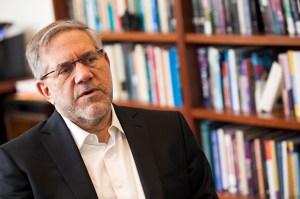
-
Science & Tech
The melding of technology
Former MIT President Susan Hockfield discussed the power of technology’s ongoing convergence during a session at the John F. Kennedy Jr. Forum.

-
Health
Target: New ways to battle disease
“The Road to Vital Therapy,” part of the Broad’s Institute’s midsummer science lecture series, discussed how researchers are tapping the human genome, hoping to create effective treatments for vexing afflictions.

-
Science & Tech
New ways to fund science
As research funding dwindles, scientists need to rethink their methods for supporting the most promising projects, and how they communicate their work to the public, Nobel Prize–winning geneticist Paul Nurse told an audience of Harvard scientists.

-
Health
Mutations drive malignant melanoma
Two mutations that collectively occur in 71 percent of malignant melanoma tumors have been discovered in what Harvard scientists call the “dark matter” of the cancer genome, where cancer-related mutations haven’t been previously found.

-
Campus & Community
A president next door
Harvard President Drew Faust — with a mischievous gift in tow — helped the Massachusetts Institute of Technology welcome its new president, L. Rafael Reif, at his inauguration on Friday.

-
Campus & Community
A welcome from John Harvard
In honor of Rafael Reif’s inauguration as the 17th president of the Massachusetts Institute of Technology (MIT), the iconic John Harvard Statue seated in Harvard Yard was decked out with an MIT cap, scarf, and pennant.

-
Campus & Community
Hyman to lead Broad research center
Steven E. Hyman, a Harvard-trained neuroscientist, University provost for a decade, and the former director of the National Institute of Mental Health, has been named director of the Broad Institute’s Stanley Center for Psychiatric Research, effective Feb. 15.

-
Health
Broad Institute awarded $32.5M grant
The Eli and Edythe L. Broad Institute of Harvard and MIT today announced that it has received a $32.5 million grant from the Boston-based Klarman Family Foundation to support a new collaborative effort focused on deciphering how human cells are wired.

-
Health
First lizard genome sequenced
The green anole lizard is an agile and active creature, and so are elements of its genome. This genomic agility and other new clues have emerged from the full sequencing of the lizard’s genome and may offer insights into how the genomes of humans, mammals, and their reptilian counterparts have evolved since mammals and reptiles…

-
Health
Cell’s linchpin protein found
After decades of failed efforts, researchers have discovered, through a combination of digital database mining and laboratory assays, the linchpin protein that drives mitochondria’s calcium machinery.

-
Science & Tech
Finding the genetic trail
Harvard Medical School researchers have traced the influence of genes from sub-Saharan Africa in European, Middle Eastern, and Jewish populations, quantifying the intermingling that occurred over many generations.

-
Campus & Community
A provost’s view across a decade
Steven E. Hyman, who is stepping down after leading Harvard’s sweeping expansion into interdisciplinary research, recalls the challenges and changes of his long tenure.

-
Health
Multiple myeloma genome unveiled
Harvard scientists have unveiled the most comprehensive picture to date of the full genetic blueprint of multiple myeloma, a form of blood cancer.
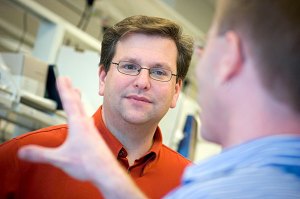
-
Health
Following the genomic road map
Harvard President Drew Faust hosted a panel discussion on the legacy of the Human Genome Project Feb. 22 at Sanders Theatre.

-
Science & Tech
The map of us
To mark the 10th anniversary of the publication of the Human Genome Map, Harvard President Drew Faust will host a panel discussion on the project next week (Feb. 22) in Sanders Theatre.

-
Campus & Community
Hyman to step down as provost
Provost Steven E. Hyman, who spurred an expansion of interdisciplinary research at Harvard and has overseen the revitalization of the University’s libraries and many of its museums and cultural institutions, plans to leave his post after nearly a decade.

-
Health
‘Another set of fingers’
An interdisciplinary group of leading Harvard geneticists and stem cell researchers has found a new genetic aspect of cell reprogramming that may ultimately help in the fine-tuning of induced pluripotent stem cells (iPS) into specific cell types.

-
Health
Progress on obesity
Researchers have identified 18 gene sites associated with obesity and 13 associated with body fat distribution, helping to unravel the riddle of obesity.

-
Campus & Community
Bill Lee to join Harvard Corporation
William F. Lee, A.B. ’72, a Boston-based intellectual property expert and former Harvard Overseer who leads one of the nation’s most prominent law firms, has been elected to become the newest member of the Harvard Corporation, the University announced today (April 11).
-
Health
Blavatnik Family Foundation gives Harvard $10M
The Blavatnik Family Foundation, headed by Len Blavatnik, M.B.A. ’89, has given Harvard University two gifts totaling $10 million in support of its scientific and technological research. Half the gift will go to the Eli and Edythe L. Broad Institute of Harvard and MIT to support cancer vaccine research, and half will go to the…
-
Health
Genetic ‘fingerprint’ shown to predict liver cancer’s return
Scientists have reached a critical milestone in the study of liver cancer that lays the groundwork for predicting the illness’s path, whether toward cure or recurrence. By analyzing the tissue in and around liver tumors, an international research team has identified a kind of genetic “fingerprint” that can help predict whether cancers will return.

